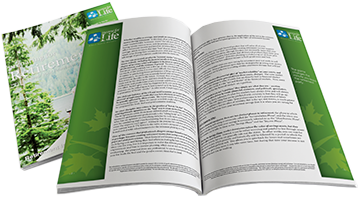BUY OUT THE IRS FOR A TAX-FREE RETIREMENT!
In retirement, your IRA becomes a tax partnership you never asked for — and the IRS could end up with half your money.
Eliminate taxes from your retirement for life. Eliminate taxes from your retirement for life.
GET YOUR 'BUY OUT THE IRS' NUMBER!
Don’t let the IRS be your largest beneficiary of your retirement dollars. Find out how to BUY THEM OUT today!
Why You Should Buy Out the IRS Now
Escape rising tax rates
Avoid Required Minimum Distributions
Lock in your current tax bracket
Build tax-free income
Leave a tax-free inheritance
Capitalize when markets are down
The Backdoor Roth IRA
A backdoor Roth IRA is a strategy that high earners can use to contribute to a Roth IRA despite income limits. This strategy involves making non-deductible contributions to a traditional IRA and then converting those dollars into a Roth IRA.
Here's how a backdoor Roth IRA works:
Contribute to a traditional IRA, preferably a non-deductible one, since there are no income limits on those contributions.
Convert the traditional IRA to a Roth IRA shortly after.
In many cases, the conversion won’t result in a tax bill. However, you’ll need to consider the following:
Taxes
In the year of the conversion, you’ll owe income tax on the entire amount you convert, which will be added to your gross income. The amount of tax you’ll owe depends on your income tax bracket and rate, which was between 10% and 37% in 2024. You should also consider state and local taxes.
Form 8606
You’ll need to file Form 8606 with your tax return in the year of the conversion.
Other costs
You should also consider other potential costs and tax liabilities before proceeding.
You can repeat the process each year if your income still prevents you from contributing to a regular Roth IRA.
Convert Smart: Key Factors to Consider
Will I pay more tax overall if I convert or if I keep my IRA?
The answer depends on several personal financial factors, and the best way to know for sure is to model both scenarios, keeping your IRA vs. converting it to a Roth IRA, with a qualified financial advisor or tax professional.
Will converting raise my tax bracket now?
Yes, converting a traditional IRA to a Roth IRA can raise your tax bracket temporarily in the year you convert. This is often referred to as tax drift, a temporary spike in taxable income due to the conversion, which may push you into a higher tax bracket.
Will this affect my Medicare or other costs?
Yes, Roth conversions can temporarily increase your Medicare premiums and other income-based fees, due to a higher reported income in the year(s) you convert. This is mainly due to the Income-Related Monthly Adjustment Amount (IRMAA). However, strategic conversions may actually lower your total lifetime costs for Medicare and taxes in retirement.
Protection from Risk
TAX RISK:
Future tax rates could be higher due to income or legislative changes
LEGISLATIVE RISK:
New tax laws could impact IRAs — Roth conversions hedge against this
What Is a Roth IRA Conversion?
A Roth IRA conversion can offer substantial advantages, particularly for those aiming for a tax-efficient retirement strategy. Unlike traditional IRAs, Roth IRAs provide the benefit of tax-free growth and withdrawals, enabling you to potentially achieve significant investment gains that are never subject to taxation. This makes Roth IRAs an attractive option for many individuals as they approach retirement.
The primary distinction between a Roth IRA and a traditional IRA lies in their tax treatment. Traditional IRAs offer a tax deduction on contributions, but withdrawals are taxed later. In contrast, Roth IRAs don’t provide an initial tax deduction, but all withdrawals are entirely tax-free. Additionally, there are no income restrictions on converting to a Roth IRA, making this opportunity available to anyone looking to reap its benefits.


